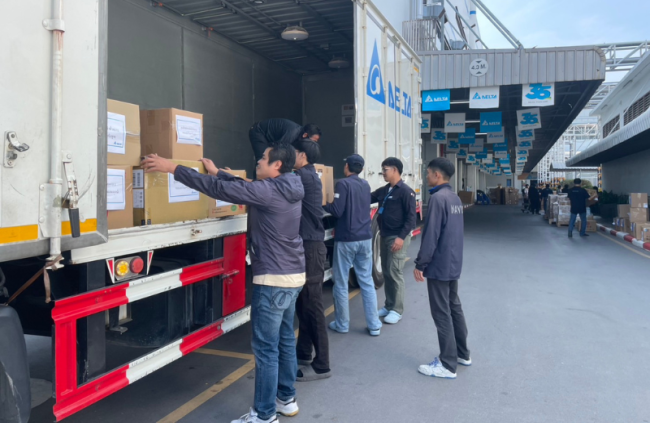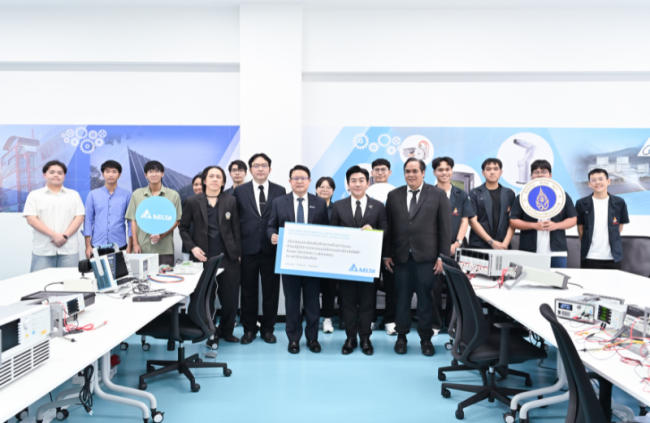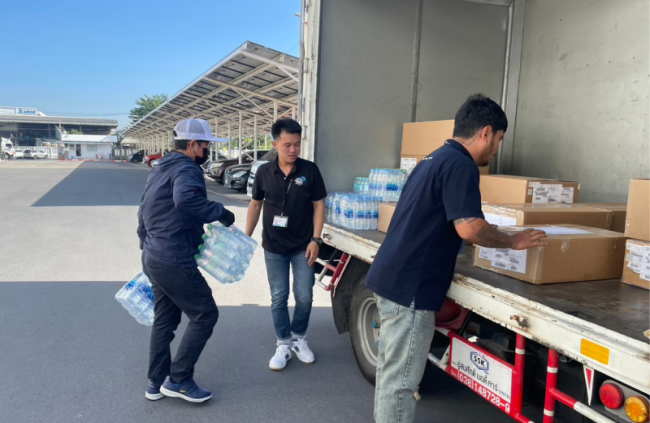Change Management in an Era of Uncertainty: Delta India MD’s Take on Becoming a Delta Leader
By David Nakayama - Published March 11, 2020
 Interview of Mr. R. Om Prakash, Managing Director, Delta Electronics India
Interview of Mr. R. Om Prakash, Managing Director, Delta Electronics India
Text by David Nakayama, DET Corp Comms
Photographs by DIN Corp Comms
*This article is updated from a previous interview at the Delta Thailand headquarters
Samutprakarn, Thailand, Feb 11, 2020 - As the compounded effects of geopolitical tensions, US-China trade war and this year’s novel Coronavirus disease 2019 (COVID-19) send shock waves across markets worldwide, Delta Thailand’s Talent Development Committee (TDC) works to offer the tools and know-how to strengthen management skills and forge true leaders who must navigate a landscape fraught with uncertainty.
One particular course, Driving Change by Development Dimensions International (DDI), taught Delta leaders the skills needed for present and upcoming challenges. The TDC selected attendees among the outstanding managers and executives from Delta’s Southeast Asia, Thailand Australia and India locations to join this timely course at the Delta Thailand headquarters.
Before his return flight, I sat down with Mr. R. Om Prakash, Managing Director of Delta Electronics India, for an exclusive interview where he shared his key takeaways from the change management training, how the shift to localization served as a catalyst for Delta India’s success and how Delta can seek opportunities despite disruption from the trade war and COVID-19.
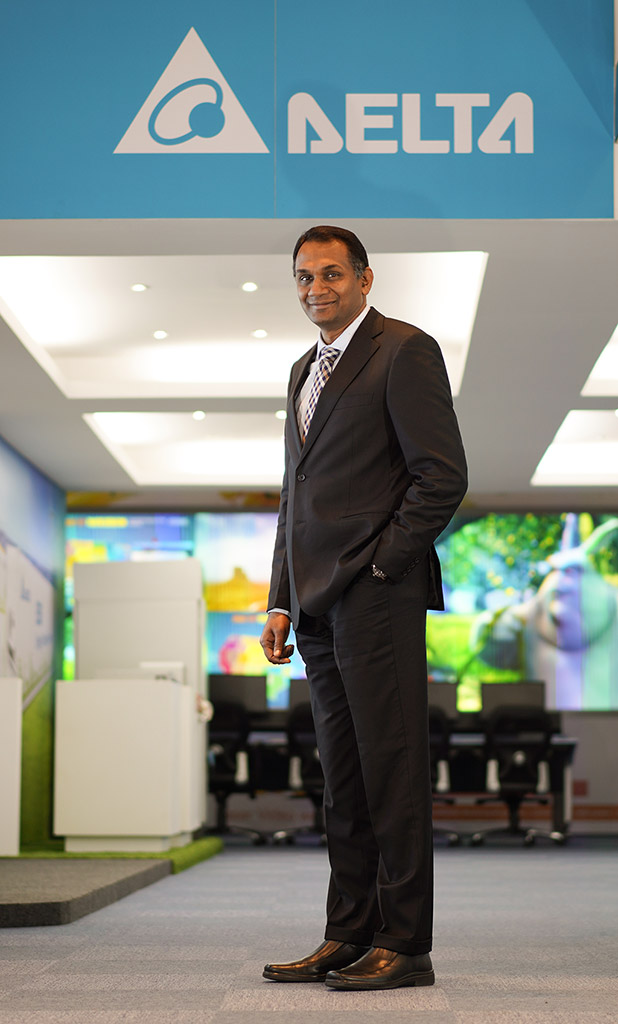 Can you share about your career with Delta and your general impression of the training at Delta Thailand?
Can you share about your career with Delta and your general impression of the training at Delta Thailand?
I joined Delta a few years ago as Head of Government and Strategy at the Delta India headquarters in Gurgaon. I took on the role of Managing Director in 2019 when our previous MD Mr. Dalip Sharma became President & Regional Head for Delta Electronics EMEA.
This is my first time to visit both Thailand and the Delta Thailand headquarters so I’m very excited to be here. In fact, I wish I had more time to stay on this trip. I came as part of a six-person Indian team selected to join this special training in Delta Thailand. Besides my Thai colleagues, I trained with Delta managers from Southeast Asia, Europe and Taiwan.
I’m very impressed at the high morale and motivation of my fellow attendees and the general level of happiness of everyone here at Delta Thailand
Why is Change Management important for managers?
Understanding how to drive change is crucial to the success of our business. If managers unilaterally give out orders to subordinates without consensus, then team members will go about their actions with no purpose.
When no one understands why they are doing things, then they will just carry out tasks because we order them. There will be no change, no ideas, no shared vision and this will doom the entire business.
A good manager communicates and drives change with everyone’s support. When problems arise, managers need to ask themselves: How do we isolate the real problems from the emotional ones? What actions can we take to get everyone involved with change?
How was this training helpful for you and other Delta leaders?
At this training, we gained scientific insights into the process of change and the rationale behind Change Management. A good manager can’t just rely on his/her own intellect, experience or skills. He/she must tap into the human quotient of their team to implement successful change.
We also learned EQ (emotional intelligence) measurement tools for effective change initiatives. I’m confident that these insights and tools will help me become more aware of indicators that tell me who is ready to embrace change, who may be the fence-sitters and who will be resistant.
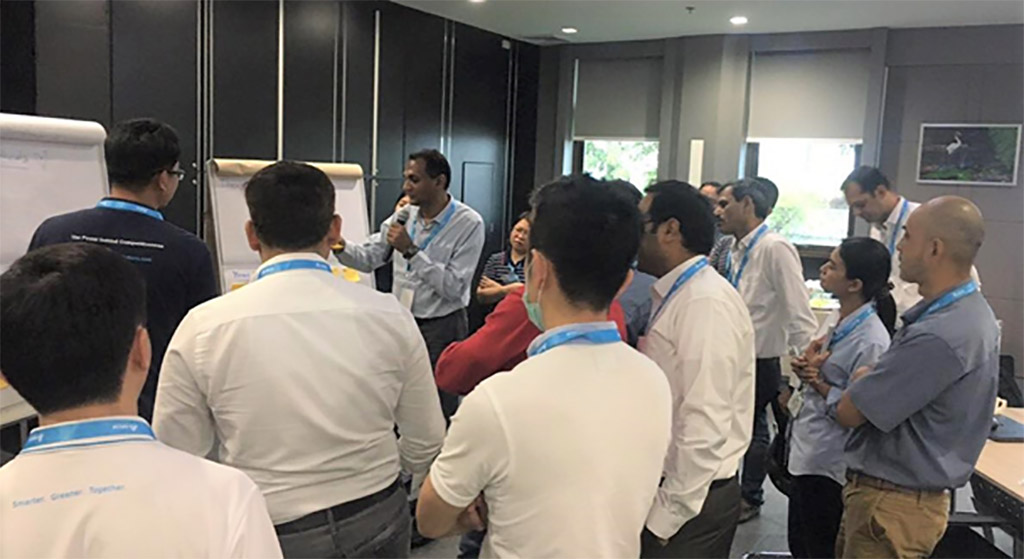 How do you think Delta leaders can best accelerate the change process?
How do you think Delta leaders can best accelerate the change process?
We can make embracing change simple and successful by meeting the personal and practical needs of each individual. The five key principles to meet personal needs are: Esteem, Empathy, Involvement, Share and Support.
You can always use the two most important principles, Empathy and Involvement, and then try to slip in the other principles to augment. For example, if you are angry with some change we are implementing I may realize you need empathy. I will get you to explain your concerns and during our communications I may find a way to involve your strengths in the initiative. Further down the line, I may see the need to support you more with recognition, a pat on the back, for your specific contributions.
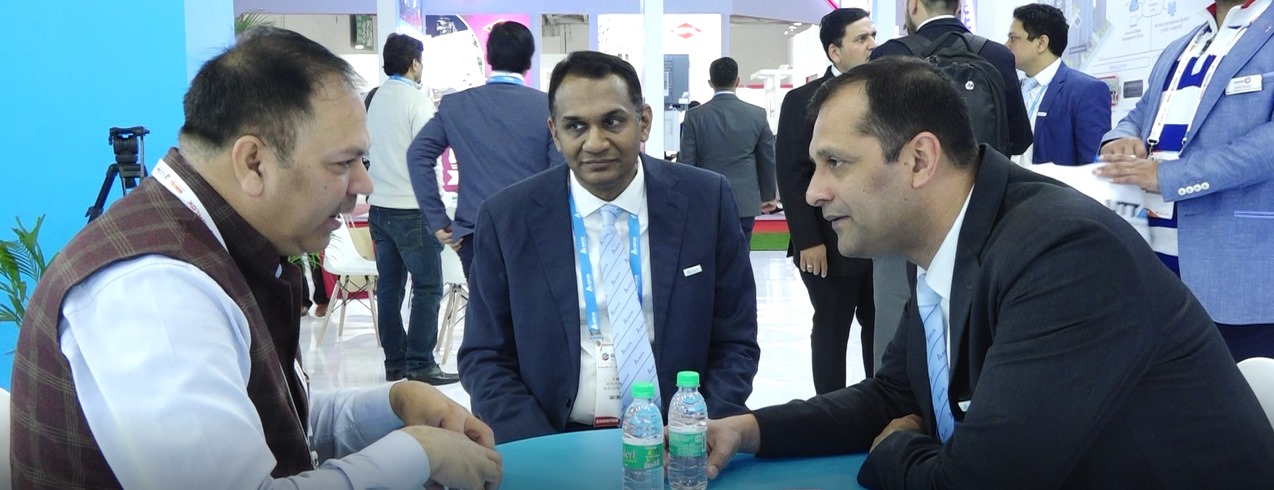 What are some significant changes you have witnessed at Delta Electronics India?
What are some significant changes you have witnessed at Delta Electronics India?
I was fortunate to join Delta during the birth and growth of our local Indian businesses. Back in 2015, Delta India was only doing Delta BU businesses. We then we started our regional businesses which now make up half of our ten business lines.
Our Indian regional businesses include Delta products, 3rd party collaborations, software wrap and end-to-end service. These regional businesses are making new inroads and opening up totally new domains. For example, Delta wasn’t in the railway industry before but now we are producing a 6000 HP Traction Propulsion Equipment System for electric locomotives in India.
How did management support the changes in Delta Electronics India?
First, copious credit goes to Dick Hsieh and James Ng from Delta Thailand who had faith in Delta India. They demonstrated this trust by allowing us to speak, giving us a mission and reminding us that we must be a profitable business.
And they had the right mechanisms in place to monitor what we were doing and make sure we always thought about how we can “sharpen our pencils”. A lot of credit also goes to our previous Delta India MD, Dalip Sharma, who stood by the team, allowed incubation, gave empowerment and built up our esteem.
Do you think Delta can make necessary changes to thrive during the US-China trade war and the ongoing COVID-19 epidemic which create market uncertainty?
We must remember that adversity can bring opportunity. At Delta, we should look to our fundamental strengths, our core technologies, and have faith in our talented people. If we react immediately to certain current conditions, we may not always make choices that lead to long-term success.
I believe the management at Delta has careful forecasts and looks for new opportunities in every situation. Years ago, Dick and James had the foresight and planning to invest in India and now we are enjoying the fruits of their vision. With the present situation, the synergies between Delta’s operations in China, Thailand and India will only grow stronger.
As for the ongoing COVID-19 epidemic, there is a massive challenge for the market with India’s reliance on China. For example, the renewable energy sector imports major components from China, and a similar dependency is spread across various industry sectors.
It’s a tough phase for the market, but this can also provide India an opportunity to encourage the manufacturing ecosystem towards localization. This can boost our local manufacturing and accelerate the “Make in India” vision, where we develop a components ecosystem for complete manufacturing rather than just assembly.
But having said that, currently it’s hard to predict how the impact of COVID-19 will further manifest itself in the market due to wide-ranging uncertainties and the issue of when China will fully restore production. We at Delta are fully prepared and at present we’re being cautious when taking new orders and keeping the timelines as flexible as possible to avoid unforeseen losses for our prestigious clients.
Nevertheless, we’re optimistic that soon there will be a solution to end this challenging phase and restore healthy life for the welfare of people and the business market alike.
In closing, do you have any suggestions for Delta managers to continue progressing in Change Management?
 I suggest attendees read their notes again and relive the role play back home. Change can happen anywhere and anytime so we should try to implement our new skills at once.
I suggest attendees read their notes again and relive the role play back home. Change can happen anywhere and anytime so we should try to implement our new skills at once.
As with any skill, you must practice constantly and be honest about your understanding to grow. We can also use these tools in many other areas including team management, conflict management, and relationship management.
To sum it up: Change Management addresses every human’s fundamental social needs by showing us how we can be part of a group and contribute to our team’s success.


